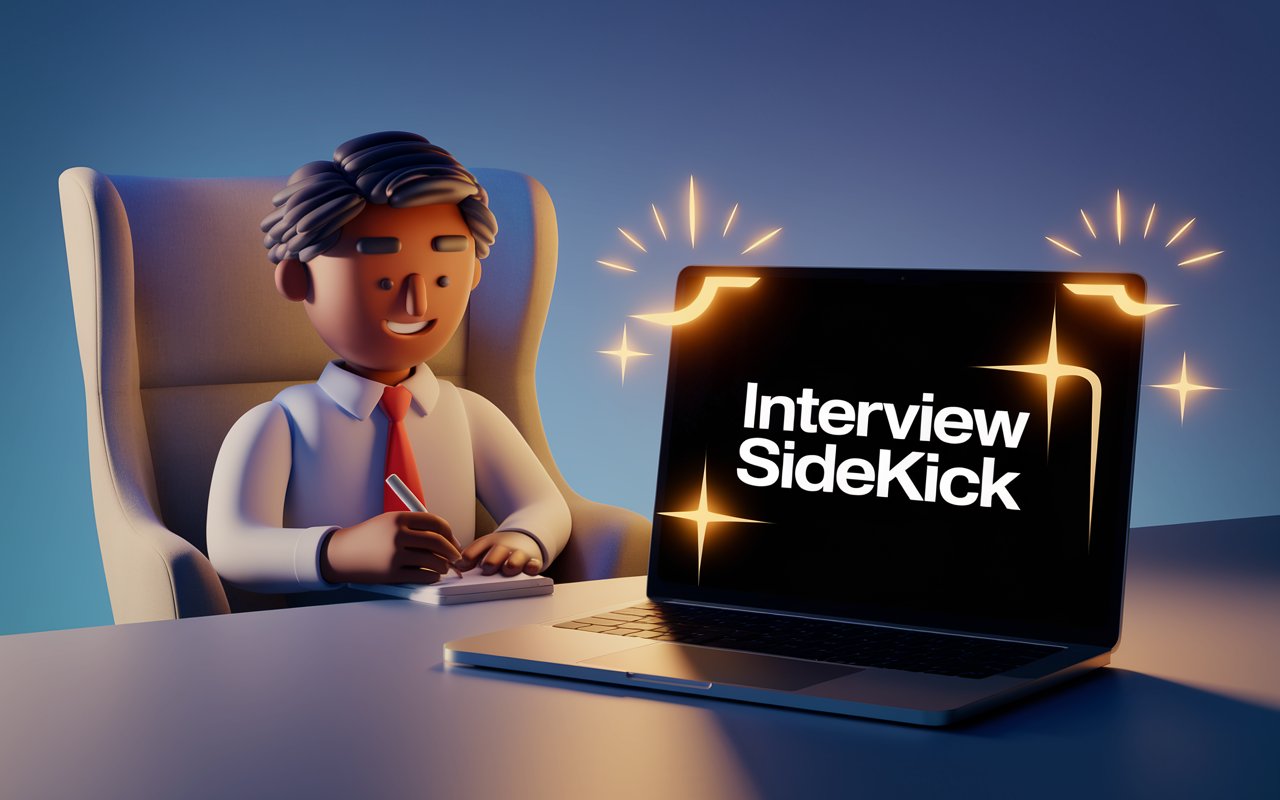3 Key Takeaways
• Maximize Insight with Informational Interview Questions: Learn how to ask strategic questions during an informational interview that provide deep insights into the company culture, industry trends, and career paths, helping you make informed career decisions.
• Focus on Problem-Solving and Innovation: Learn how to approach Google’s technical questions with a problem-solving mindset, emphasizing creativity, efficiency, and innovation in your solutions.
• Mastering Behavioral Questions: Prepare to answer behavioral questions that explore your past experiences, teamwork, and leadership qualities, using the STAR method to provide clear and structured responses.
Introduction
Informational interviews are more than just friendly chats—they’re a powerful way to get insider knowledge about a career path, industry, or specific company. You can learn things you won’t find through regular research by asking good questions. Whether you’re a student looking at career options, professional thinking about switching careers, or just want to grow your network, getting good at informational interview questions can help you succeed.

Image Source: Pexels
What is an Informational Interview?
An informational interview lets you get advice and insights from someone who works in a field or job that interests you. These interviews differ from job interviews because you aim to learn from the interviewee’s experiences, gather information, and grow your professional network, not to land a job.
“Informational interviews are an essential tool for anyone navigating their career journey. They provide the unique opportunity to learn from those who have walked the path before you.” — Jenny Foss, Career Coach
Relevant
Top 21 Interview Tips to Make a Great First Impression During Your Job Interview
Mastering Your Amazon Interview: Top Tips and Tricks for Landing the Job in 2024
How to Prepare Matters
“Preparation is key to making the most out of an informational interview. You need to know what you want to get out of the conversation and be ready to engage meaningfully.” — Heather Huhman, Career Expert
You need to prepare before you start asking questions. Look into the person you’ll interview, their company, and their industry. This helps you ask smart questions and show you care. The more you prepare the better the talk will be.
Informational Interview Questions
“The quality of your questions determines the quality of the answers you receive. Thoughtful, open-ended questions can unlock insights that you wouldn’t find anywhere else.” — Richard N. Bolles, Author of ‘What Color Is Your Parachute?’
Questions About Career Path and Experience
- Getting to Know Your Journey: “Can you tell me about your career path and what brought you to your current job?”
- Everyday Tasks: “What’s a normal day like in your role?”
- Key Abilities and Achievements: “Which skills have been vital to your success?”
These questions help you get a sense of the road someone has taken to their current spot giving you a peek into the steps you might need to take and the hurdles you could face.
Questions About the Company and Job
- Company Culture: “How would you sum up the company’s atmosphere?”
- Job Challenges and Rewards: “What tough spots and perks come with your job?”
- Impact and Mission: “How does your job help the company achieve its goals?”
Getting to know the company’s vibe and how different jobs play a part in its success can help you figure out if it’s a good match for you.
Relevant
How to Answer Most Exit Interview Questions in 2024?
Top 10 Most Common Interview Questions and Answers in FAANG Companies (2024)
Industry-Specific Questions
- Trends and Innovations: “What new developments in this industry should I keep an eye on?”
- Recommended Resources: “What professional groups or reading materials do you suggest for newcomers to this field?”
Knowing what’s happening in your industry and which resources matter can give you an edge when planning your career.
Questions for Career Changes
- Changing Careers: “What would you tell someone who wants to switch to this field?”
- Skills That Transfer: “Which of my current abilities would be most useful in this industry?”
These questions can help people thinking about a career change. They show how to use your existing skills and what new knowledge you might need to gain.
How to Adjust Your Informational Interview Questions to Your Aims
“When your questions are aligned with your career objectives, you’re not just gathering information—you’re creating a roadmap for your future.” — Dorie Clark, Marketing Strategy Consultant and Author
The informational interview questions you ask should match your career goals. If you’re checking out a new industry, ask industry-specific questions. If you’re thinking about a job at a certain company, shape your questions to find out more about the company’s culture and chances to grow. Here’s how you can tailor your approach:
- Looking into a New Career: Ask about the interviewee’s career path and the skills you need to do well in the field.
- Getting to Know a Specific Company: Point your questions toward understanding the company’s culture, values, and what goes on day-to-day.
- Growing Your Network: Ask for suggestions on other professionals you should talk to or industry groups to join.
Relevant
50+ Essential Behavioral Interview Questions in 2024
Job Interview Questions and Answers Sample for Freshers
Best Practices to Carry Out an Informational Interview
“Approach each informational interview with a mindset of genuine curiosity and respect for the interviewee’s time. This opens the door to candid, valuable conversations.” — Adam Grant, Organizational Psychologist
To have a good informational interview, you need to do more than just ask the right questions. Here are some pointers to help you have a useful chat:
- Build Rapport: Say hello in a friendly way and show real interest in what the person you’re talking to says. Making a connection can get you more open and useful answers.
- Time Management: Be mindful of the person’s time by sticking to the agreed interview length. Focus on the most crucial questions and keep an eye on the time.
- Active Listening: Listen carefully to the answers and ask follow-up questions that relate. This shows you’re paying attention and value what they’re saying.
- Follow-Up: After you’re done, send a note to thank them. Mention specific things they said that helped and how you plan to use them.
Common Pitfalls to Avoid
“The biggest mistake people make in informational interviews is not doing their homework. You can’t expect to get valuable insights if you haven’t invested the time to learn about the person and their work.” — Pamela Skillings, Co-founder of Big Interview
While informational interviews tend to be casual, some common mistakes can throw off the conversation. Here’s what you should steer clear of:
- Asking Questions That Don’t Fit: Make sure your questions relate to the interviewee’s background and your career aims. Questions that don’t fit can use up time and leave a bad taste.
- Not Doing Your Homework: If you don’t look into the interviewee and their field beforehand, you might ask things you could find out with a quick online search.
- Talking Too Much About Yourself: Keep in mind, the goal is to learn from the person you’re talking to. Don’t turn the chat into a chance to brag about yourself.
Sample Question Categories
To make your informational interview more organized here are some question groups you might think about:
Career Path and Development
- “How did you get started in this industry?”
- “What’s been your biggest career hurdle, and how did you tackle it?”
- “What’s the usual career path in your field?”
Company and Role Insights
- “What makes someone successful in your job?”
- “Can you tell me about how your team works together?”
- “How do you think the company will change in the next few years?”
Industry Trends and Knowledge
- “What big problems is the industry dealing with now?”
- “How do you keep up with what’s happening in the industry?”
- “Which skills are becoming more crucial in your line of work?”
Tips and Connections
- “Who else should I talk to for more insights?”
- “Which professional groups would you suggest I join?”
- “What do you wish someone had told you before you started in this field?”
FAQs
What is an informational interview?
An informational interview is a meeting where you seek advice and insights from someone working in a field or role you’re interested in. It’s not a job interview but rather an opportunity to learn more about a specific industry, company, or career path.
How should I follow up after an informational interview?
- Send a Thank-You Note: Within 24 hours, express your appreciation for their time and insights.
- Highlight Key Takeaways: Mention specific advice or information that was particularly helpful.
- Stay Connected: Consider connecting on LinkedIn or keeping in touch periodically.
How long should an informational interview last?
Informational interviews typically last 20-30 minutes. It’s important to respect the interviewee’s time and keep the conversation concise and focused.
Can I ask for a job during an informational interview?
No, the primary purpose of an informational interview is to gather information and advice, not to ask for a job. However, if the interviewee offers to refer you or discusses job openings, you can follow up on that opportunity afterward.
How do I request an informational interview?
- Be Polite and Clear: Reach out via email or LinkedIn, briefly introducing yourself, explaining why you’re interested in speaking with them, and requesting a short meeting at their convenience.
- Offer Flexibility: Be flexible with your timing to accommodate their schedule.
Can informational interviews lead to job offers?
While the primary goal isn’t to secure a job, informational interviews can sometimes lead to job opportunities if you make a strong impression and the interviewee knows of relevant openings.
Conclusion
“Informational interviews are a powerful tool that, when used correctly, can open doors and provide clarity in your career journey. The insights you gain are often the ones that make the difference between a job and a dream career.” — Liz Ryan, Founder of Human Workplace
Informational interviews have an influence on people who want to learn more about careers, make smart choices, and connect with others in their field. When you ask good questions and plan these interviews, you’ll get insights that help you move forward in your career with more confidence. Keep in mind, that to make an informational interview work well, you need to prepare, listen closely, and follow up.
This guide will help you get ready for your next informational interview. It’ll put you on the right track to find new chances and reach your career goals.




